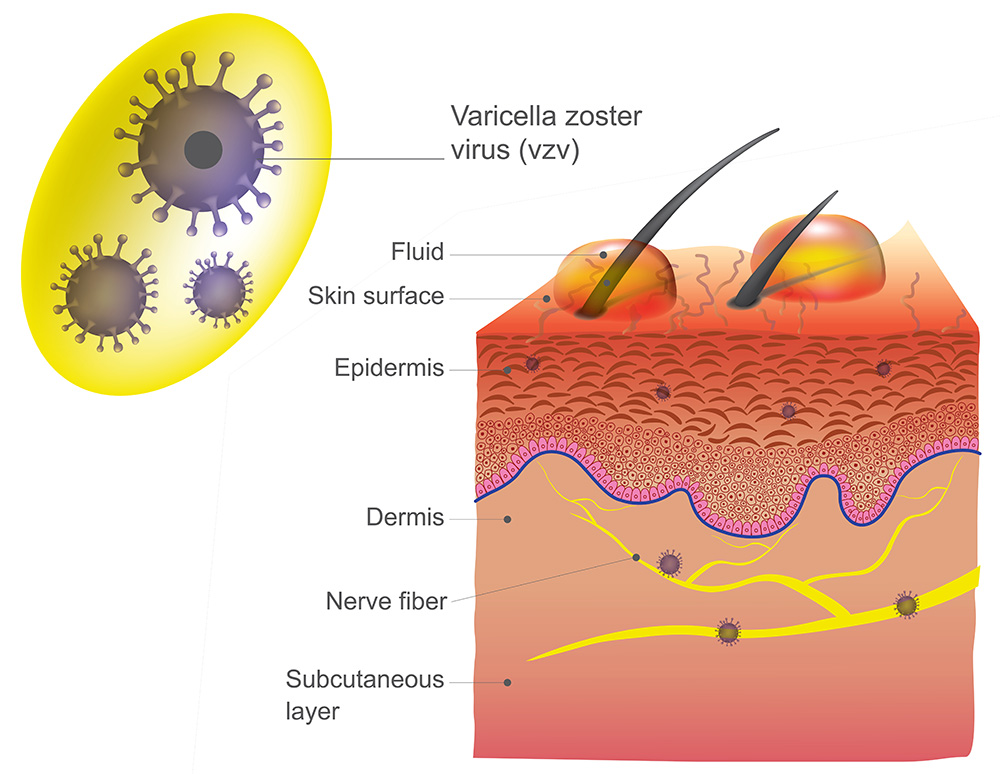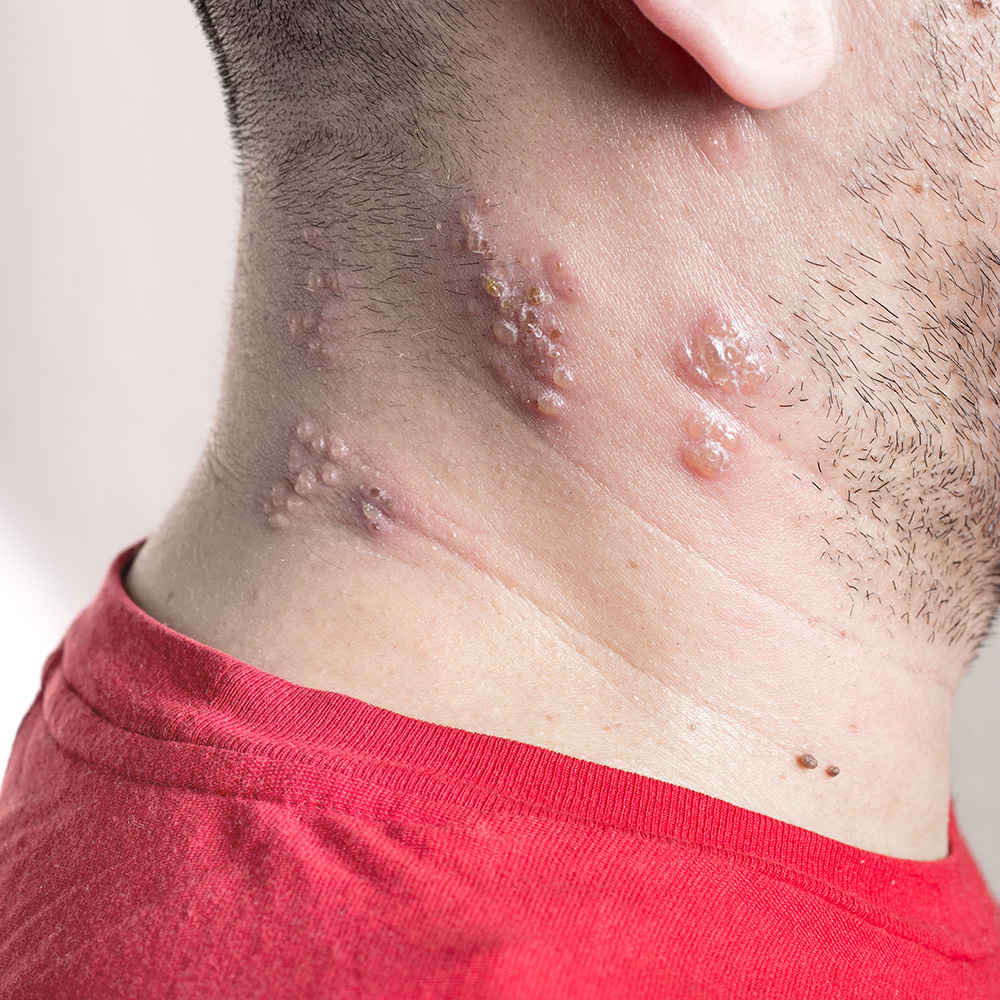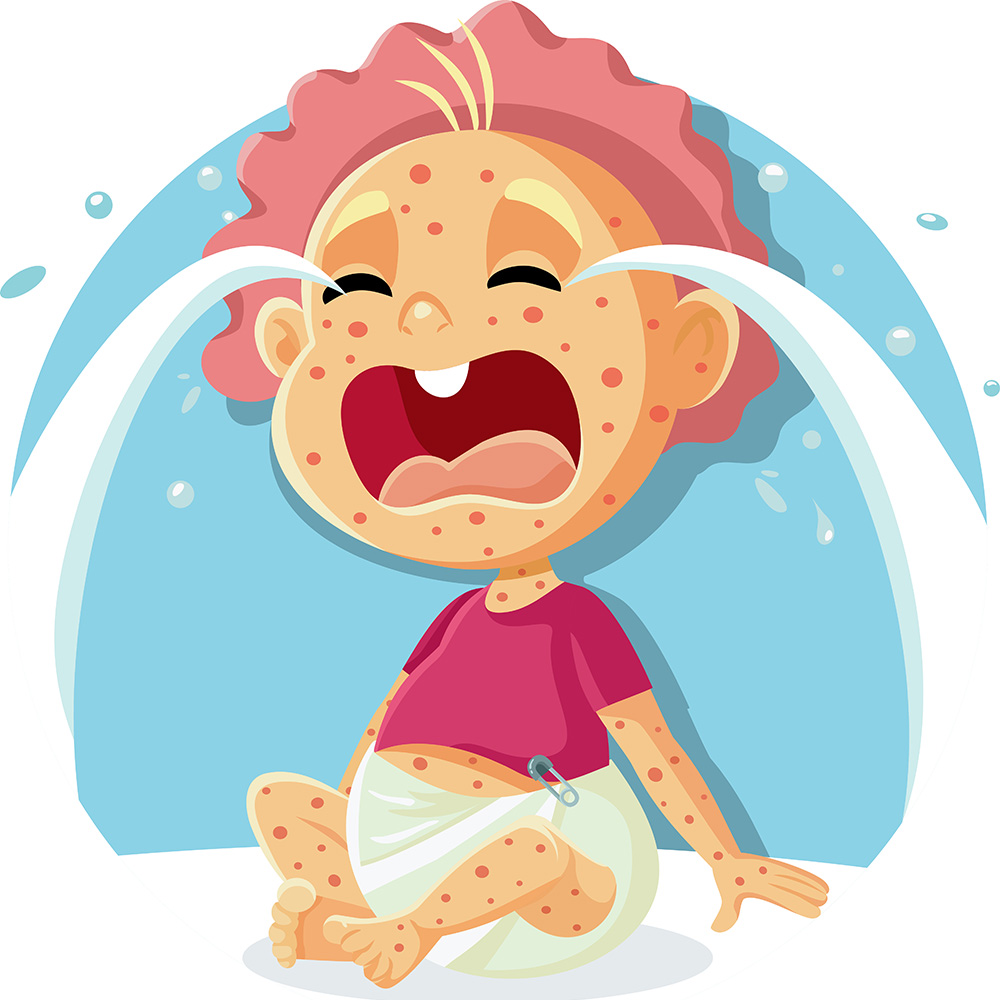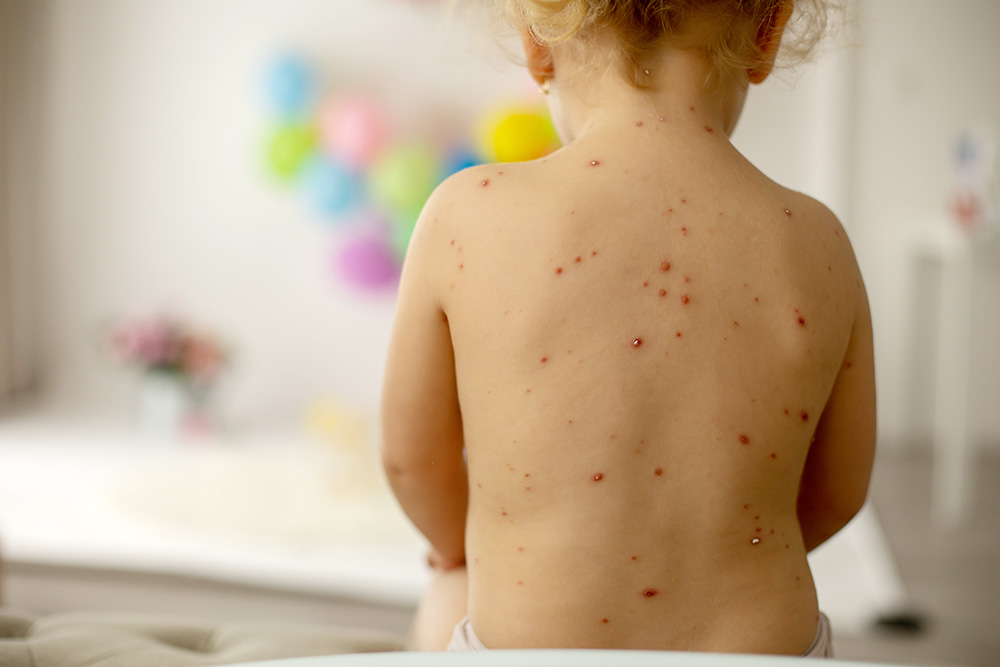Chickenpox and Shingles
The relationship between chickenpox and shingles is key to managing and preventing them effectively.
Chickenpox Basics
Chickenpox is typically the primary infection caused by the Varicella-Zoster Virus (VZV). It’s most common in children and is characterised by an itchy rash, fatigue, and fever.
Varicella Zoster Virus

In most cases, after a bout of chickenpox, the body’s immune system suppresses the virus, pushing it into a dormant state. However, the virus doesn’t leave the body. Instead, it retreats to nerve tissues near the spinal cord and brain, where it remains in a sleeping state.
Shingles (a re-awakening of VZV)
Years or even decades after the initial chickenpox infection, the VZV can reactivate, leading to a condition known as shingles.

Shingles is characterised by a painful rash, often appearing as a stripe of blisters on one side of the body. Shingles is more common in older adults and those with weakened immune systems.

FREE Shingles Vaccination
The good news for Perth locals (and particualrly for thos eliving int he Willetton / Riverton area) is that there are vaccines available right at your doorstep. The same (free) vaccine can help prevent both chickenpox and shingles.
The shingles vaccine is recommended for adults aged 50 and older, even if they’ve already had shingles.
It’s best to consult with one of our doctors to discuss your personal risk factors and vaccination options.

Stay Informed about Shingles
Understanding the relationship between chickenpox and shingles is crucial in managing our health, especially as we age. Remember, whether you’re in the heart of Perth or anywhere else in the world, your best defence against these viral infections is being informed and taking preventive measures. Always consult with your healthcare provider for the most accurate and personalised advice. Knowledge is, indeed, power when it comes to your health.
The connection between chickenpox and shingles
If you’re a Perth resident who had chickenpox as a child, you may be wondering what this means for your risk of developing shingles. Because the VZV is still in your body, you’re technically at risk, but it’s not a guarantee. According to the US Centers for Disease Control and Prevention, about one in three people will develop shingles in their lifetime.
Your risk increases as you age – especially after 50yrs
The following groups of patients are eligible to receive free government-funded flu vaccinations:
- individuals aged 65 years or older
- children aged 6 months to students in year 6
- pregnant women (any trimester)
- Aboriginal people 6 months and older
- chronic respiratory conditions
- cardiac disease
- chronic neurological conditions
- impaired immunity
- diabetes and other metabolic disorders
- renal disease
- haematological disorders
- children aged 6 months to 10 years receiving long-term aspirin therapy.
Don't forget to wash your hands...
The Australian Immunisation Register
Your immunisation provider is required to report all influenza vaccinations to the Register. This includes some personal information such as your name, date of birth, contact details, and your Medicare card number.

